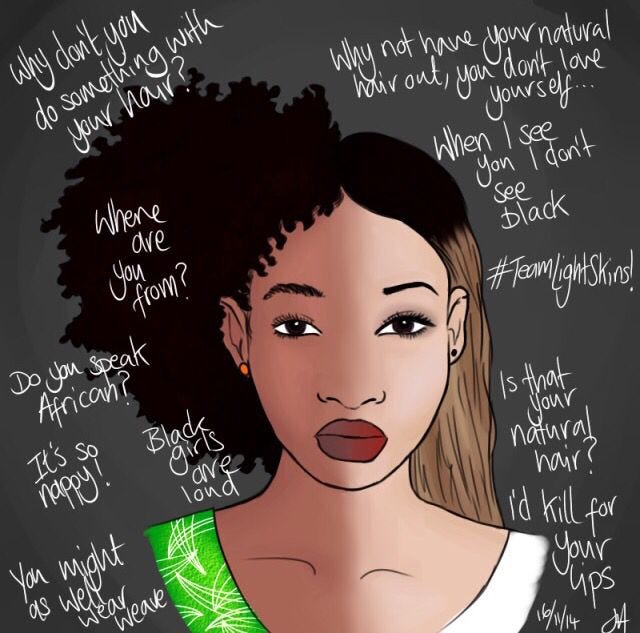

Hair discrimination is the unjust social and economic treatment of a marginalized culture by the dominant culture based on hair, which, in a country riddled with centuries of anti-Black racism (looking at you, America), typically refers to afro-textured hair. The colonial misperception that natural Black and Afro-textured hair are “other,” “nappy,” “kinky” and “inappropriate,” still permeates modern workplaces, schools and institutions when people demonstrate negative bias against hairstyles (i.e. protective styles—braids, locs, twists and knots) or texture (i.e. afros, curls, etc.) in favor of Euro-centric, white hairstyles and texture.
Hair discrimination isn’t new. In fact, US states have been passing laws that discriminate against black hair since the 1700s. Check out more facts about the history of black hair discrimination in the US below.
The CROWN Act (short for The “Create a Respectful and Open World for Natural Hair” law) is a law to end hair discrimination based on hairstyle or texture. It also requires jobs and schools to update any policies put in place that use biased language that focuses on a person’s appearance. The law was created in 2019 by Dove and other organizations like Color of Change, National Urban League and Western Center on Law & Poverty.


In 1964, the U.S Government passed a Civil Rights Act that put a stop on discrimination when hiring employees. This is a problem that some face daily, and it needs to stop. As a community, we need to find ways to make others aware of this kind of discrimination.
https://www.dove.com/us/en/stories/campaigns/the-crown-act.html#! (n.d.).
Kennedy, Kennedy, Dasia, Dasia, Editor, & Editor. (2022, March 14). 99+ hair discrimination laws in the US (by states) Statistics & Facts in 2022. AfroLovely. Retrieved April 1, 2022, from https://afrolovely.com/hair-discrimination-laws-in-the-us/
